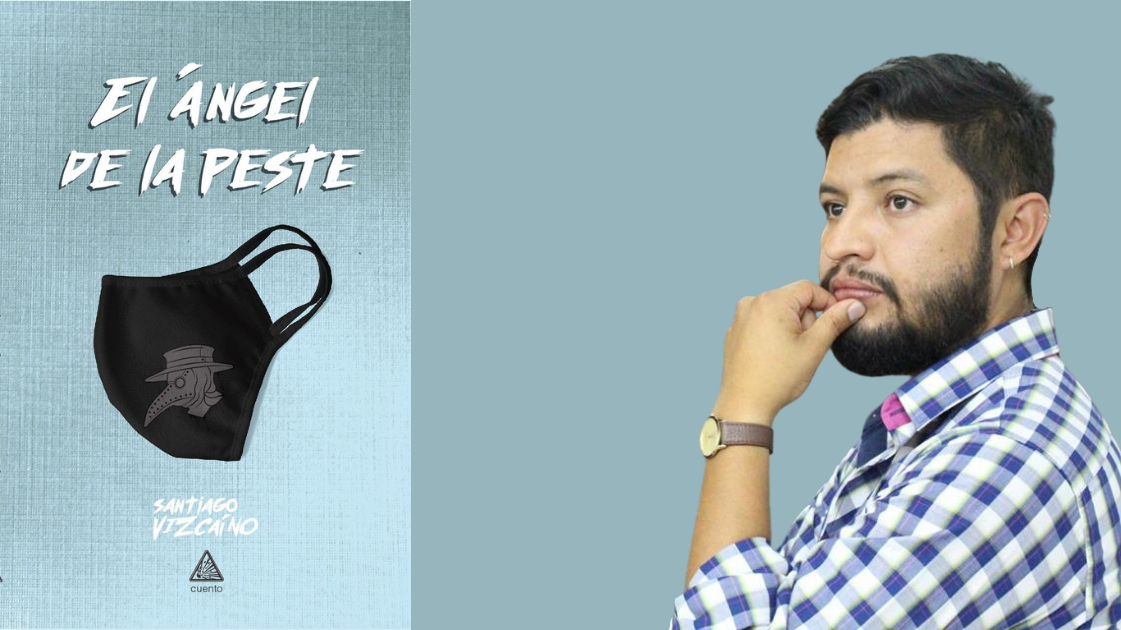El ángel de la peste
Santiago Vizcaíno
|
When the outside world has turned into chaos, what happens on the inside, behind closed doors? This is precisely the fictional universe we find in El Ángel de la Peste (La Caída, 2021), the most recent work by Ecuadorian writer Santiago Vizcaíno. Very much in the style of Alfred Hitchcock’s Rear Window—where viewers can peek into the life of the occupants of a small building—Vizcaíno's extraordinary short story collection reveals intimate moments of a pandemic world through the eyes of different types of characters who are yearning to find some kind of normalcy in the midst of total uncertainty. From the boy in ‘Toque de Queda’ who must come to terms with the death of his grandmother in addition to the horror of not being able to bury her, to the woman in ‘Pesadillas’ who, despite having doubts about her feelings for her partner with whom she has to share the quarantine period, nevertheless clings to the idea of romantic love, readers will be privy to the inner universe of characters forced to absorb into their already disturbing everyday lives the threat of an invisible enemy, one that attacks like “lluvia que cae con tal violencia que parece que viene de una nube con rabia” ("rain that falls with such violence that it seems to come down from the clouds full of rage"). In addition to being the collective ghost that haunts each story, the external crisis highlights or points to conflicts that were already there, giving voice to fears and frustrations which are suddenly magnified through a common threat. As the narrator of 'Tamales' tells us, “aun cuando se pretende conocer el interior, hay secretos, secretos terribles que jamás se dicen y que no encuentran cauces” ("even when one attempts to find out what's inside, there are secrets, terrible secrets that are never told, never find a way out"). In this way, the pandemic creates a path to catharsis and hope because it is the event that connects all these characters. |
Readers will identify with the anguish, fear, and struggles of the multiple voices featured in these stories, thus feeling they are not alone in their fears and anxiety. Because the worst situation imaginable—this global disaster that we’ve all had to endure—can also be what brings us together. And it is there in those connections where a sense of hope can be found somewhere within the tiny universes in this enticing collection. It remains for each reader to find their own window to hope in a seemingly ordinary detail or perhaps, in the least expected places.
Santiago Vizcaíno has published poetry, short stories, novels, and essays. He received the National Literature Award by the Ministry of Culture of Ecuador (2008) and the Pichincha Poetry Award (2011). He leads the Publications Center of the Pontificia Universidad Católica del Ecuador and curates the Quito International Book Fair.
El ángel de la peste (2021) was published by La Caída (Cuenca, Ecuador).
Santiago Vizcaíno has published poetry, short stories, novels, and essays. He received the National Literature Award by the Ministry of Culture of Ecuador (2008) and the Pichincha Poetry Award (2011). He leads the Publications Center of the Pontificia Universidad Católica del Ecuador and curates the Quito International Book Fair.
El ángel de la peste (2021) was published by La Caída (Cuenca, Ecuador).
Comment Box is loading comments...
|
|









